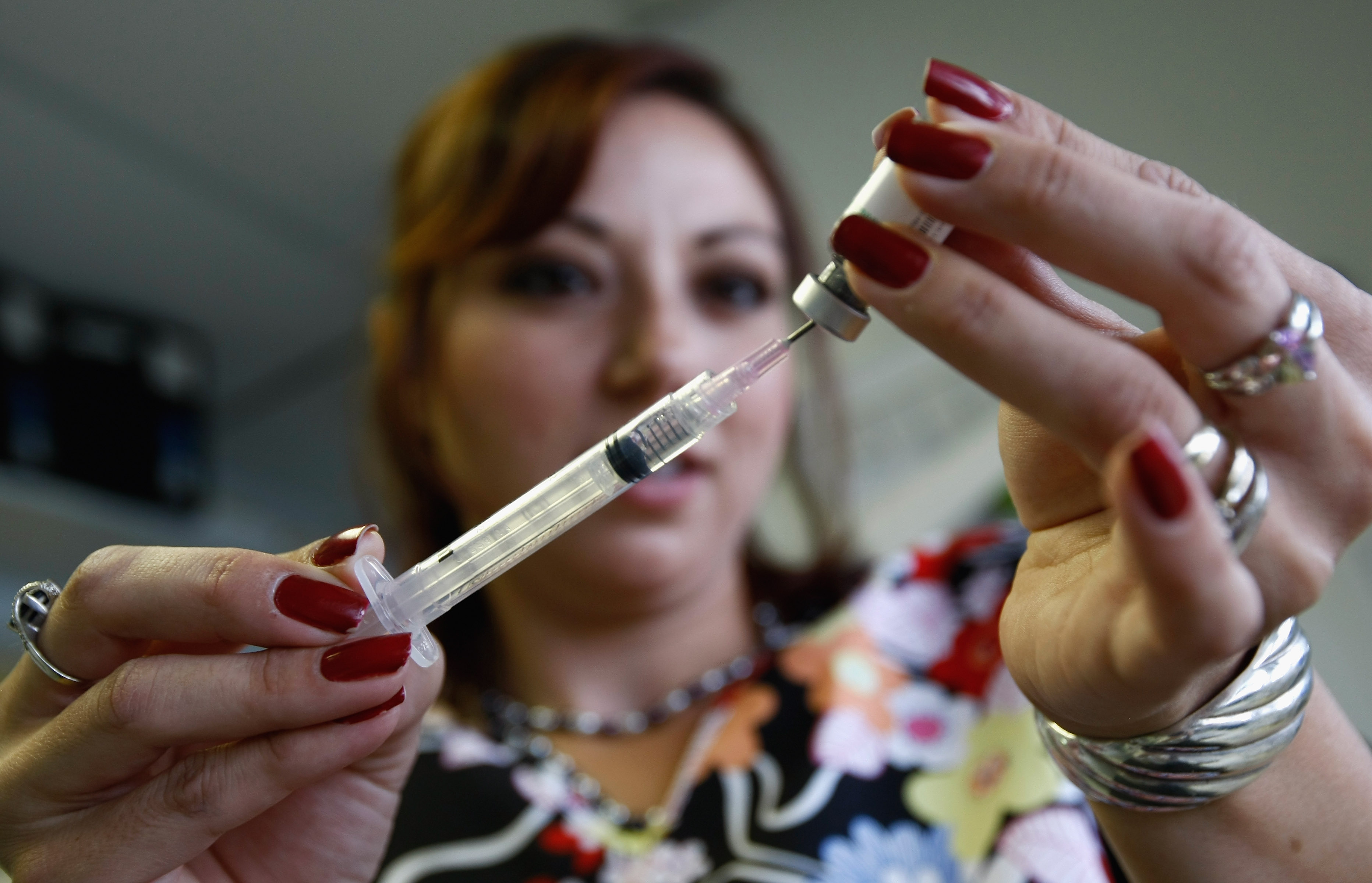Another major study confirms no connection between autism and MMR vaccine


A free daily email with the biggest news stories of the day – and the best features from TheWeek.com
You are now subscribed
Your newsletter sign-up was successful
The MMR vaccine, which protects against measles, mumps, and rubella, does not increase the risk of autism, researchers in Denmark report in a new study.
In the late 1990s, a British physician named Andrew Wakefield published a now-retracted study claiming to have found a connection between autism and the MMR vaccine. It was later revealed that he faked some of his data, and Wakefield can no longer practice medicine, but his report is still fueling the anti-vaccination crowd, which maintains a link exists.
The Danish study, published in the Annals of Internal Medicine, specifically focused on criticisms from people who think vaccinations are dangerous. The researchers looked at children who have a sibling with autism and those with older parents, for example, to see whether some kids are more likely to be diagnosed with autism following an MMR vaccination, The Guardian reports.
The Week
Escape your echo chamber. Get the facts behind the news, plus analysis from multiple perspectives.

Sign up for The Week's Free Newsletters
From our morning news briefing to a weekly Good News Newsletter, get the best of The Week delivered directly to your inbox.
From our morning news briefing to a weekly Good News Newsletter, get the best of The Week delivered directly to your inbox.
Overall, the study followed 657,461 children, 6,517 of whom were diagnosed with autism over the decade-long study; 95 percent of the children received the MMR vaccine. The team found that children who were given the MMR vaccine were 7 percent less likely to develop autism than kids who did not get vaccinated, and that kids who did not receive any vaccinations were 17 percent more likely to be diagnosed with autism than kids who did get them.
They also determined that kids with autistic siblings were roughly seven times more likely to be diagnosed with autism than those who did not have that family connection. Dr. Anders Hviid of the Statens Serum Institut in Copenhagen, the study's lead author, made it clear that that vaccines should not be skipped due to fear of autism. "The dangers of not vaccinating includes a resurgence in measles, which we are seeing signs of today in the form of outbreaks," he told Reuters.
A free daily email with the biggest news stories of the day – and the best features from TheWeek.com
Catherine Garcia has worked as a senior writer at The Week since 2014. Her writing and reporting have appeared in Entertainment Weekly, The New York Times, Wirecutter, NBC News and "The Book of Jezebel," among others. She's a graduate of the University of Redlands and the Columbia University Graduate School of Journalism.
-
 Quentin Deranque: a student’s death energizes the French far right
Quentin Deranque: a student’s death energizes the French far rightIN THE SPOTLIGHT Reactions to the violent killing of an ultra-conservative activist offer a glimpse at the culture wars roiling France ahead of next year’s elections.
-
 Secured vs. unsecured loans: how do they differ and which is better?
Secured vs. unsecured loans: how do they differ and which is better?the explainer They are distinguished by the level of risk and the inclusion of collateral
-
 ‘States that set ambitious climate targets are already feeling the tension’
‘States that set ambitious climate targets are already feeling the tension’Instant Opinion Opinion, comment and editorials of the day
-
 Trump HHS slashes advised child vaccinations
Trump HHS slashes advised child vaccinationsSpeed Read In a widely condemned move, the CDC will now recommend that children get vaccinated against 11 communicable diseases, not 17
-
 FDA OKs generic abortion pill, riling the right
FDA OKs generic abortion pill, riling the rightSpeed Read The drug in question is a generic version of mifepristone, used to carry out two-thirds of US abortions
-
 RFK Jr. vaccine panel advises restricting MMRV shot
RFK Jr. vaccine panel advises restricting MMRV shotSpeed Read The committee voted to restrict access to a childhood vaccine against chickenpox
-
 Texas declares end to measles outbreak
Texas declares end to measles outbreakSpeed Read The vaccine-preventable disease is still spreading in neighboring states, Mexico and Canada
-
 RFK Jr. shuts down mRNA vaccine funding at agency
RFK Jr. shuts down mRNA vaccine funding at agencySpeed Read The decision canceled or modified 22 projects, primarily for work on vaccines and therapeutics for respiratory viruses
-
 Measles cases surge to 33-year high
Measles cases surge to 33-year highSpeed Read The infection was declared eliminated from the US in 2000 but has seen a resurgence amid vaccine hesitancy
-
 Kennedy's vaccine panel signals skepticism, change
Kennedy's vaccine panel signals skepticism, changeSpeed Read RFK Jr.'s new vaccine advisory board intends to make changes to the decades-old US immunization system
-
 Kennedy ousts entire CDC vaccine advisory panel
Kennedy ousts entire CDC vaccine advisory panelspeed read Health Secretary RFK Jr. is a longtime anti-vaccine activist who has criticized the panel of experts
